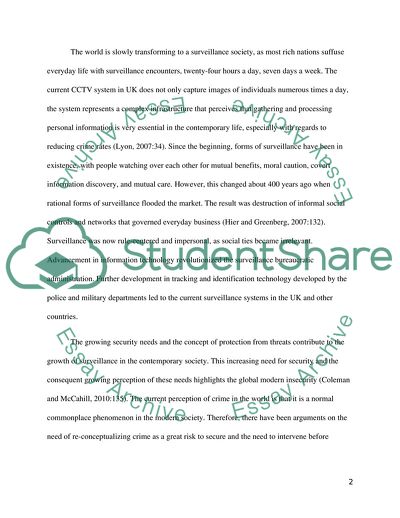Cite this document
(Surveillance's Influence on the Society Essay Example | Topics and Well Written Essays - 1750 words, n.d.)
Surveillance's Influence on the Society Essay Example | Topics and Well Written Essays - 1750 words. https://studentshare.org/social-science/1766741-surveillance-technology-and-society
Surveillance's Influence on the Society Essay Example | Topics and Well Written Essays - 1750 words. https://studentshare.org/social-science/1766741-surveillance-technology-and-society
(Surveillance'S Influence on the Society Essay Example | Topics and Well Written Essays - 1750 Words)
Surveillance'S Influence on the Society Essay Example | Topics and Well Written Essays - 1750 Words. https://studentshare.org/social-science/1766741-surveillance-technology-and-society.
Surveillance'S Influence on the Society Essay Example | Topics and Well Written Essays - 1750 Words. https://studentshare.org/social-science/1766741-surveillance-technology-and-society.
“Surveillance'S Influence on the Society Essay Example | Topics and Well Written Essays - 1750 Words”. https://studentshare.org/social-science/1766741-surveillance-technology-and-society.


